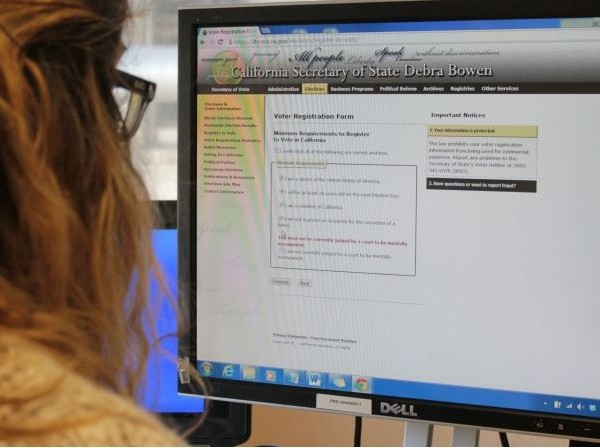Online Voter Registration Gains Traction Nationwide

Online voter registration is a concept that has only recently been made available to U.S. citizens. At the moment, most states don't have a system set up for it. However, that could change in the near future, if current trends are any indication.
Unfortunately, there are a few issues that currently keep it from being used nationwide.For starters, when President Obama was first elected in 2008, only two states -- Washington and Arizona -- had online voter registration systems. In 2012, when he was reelected, 13 states had these systems.
Now, a total of 23 states have or are about to have what is called "voter registration modernization." Many believe that most states will enact online voter registration -- sooner rather than later -- now that word of the many advantages is spreading.
The evidence about this is just so clear,” said David Becker, director of election projects for Pew Charitable Trusts. “If you can create a tool that harnesses electronics to allow voters greater convenience and creates greater security for an election and saves the voters thousands of dollars in the process, why wouldn’t you?”
The process for all states is the same: log into the state website, enter driver's license or last four digits of one's social security number, then, after the system has authenticated the information provided, register to vote.
Voters love it,” Becker said. “You can register at 2 a.m. in your pajamas rather than go down to a government office or wait for a voter registration drive somewhere.”
One big advantage of registering to vote online is the cost. According to a study by Pew Charitable Trusts, a paper registration application costs $0.83, while an online electronic application costs only $0.03. A meager difference, at first glance, but considering that about 77 percent of eligible Americans registered to vote in 2008, the savings could be tremendous.
And the trend appears to be growing, especially among young voters. In California, for example, There were more voters who registered online than who registered through any other means (78 percent versus 70 percent), according to a study by UC Davis.
Naturally, there are a few drawbacks to registering to vote online. One of the largest is availability. Many voters simply do not have reliable Internet access in their homes, especially voters from lower income or education brackets. For example, just 39 percent of those with no high school degree report having Internet access at home.
Another issue on the minds of many naysayers is security. Naturally, when dealing with anything over the internet, security breaches are bound to occur.
In Maryland, lawmakers and researchers wrote a letter to politicians stating that anyone with access to a Maryland voter's full name and birth date could effectively steal their identity. They could then vote on their behalf, change their address, and even alter their stated political orientation.
There are ways to prevent this. Maryland officials have adopted a monitoring system that ensures voter accounts are not changed too often. This is just one of several solutions to the security problem.
Ross Goldstein, deputy administrator of the elections board, is confident the system is effective.I am not going to disclose what security steps we have taken or not taken,” Goldstein said. “We are confident the system is secure.”




